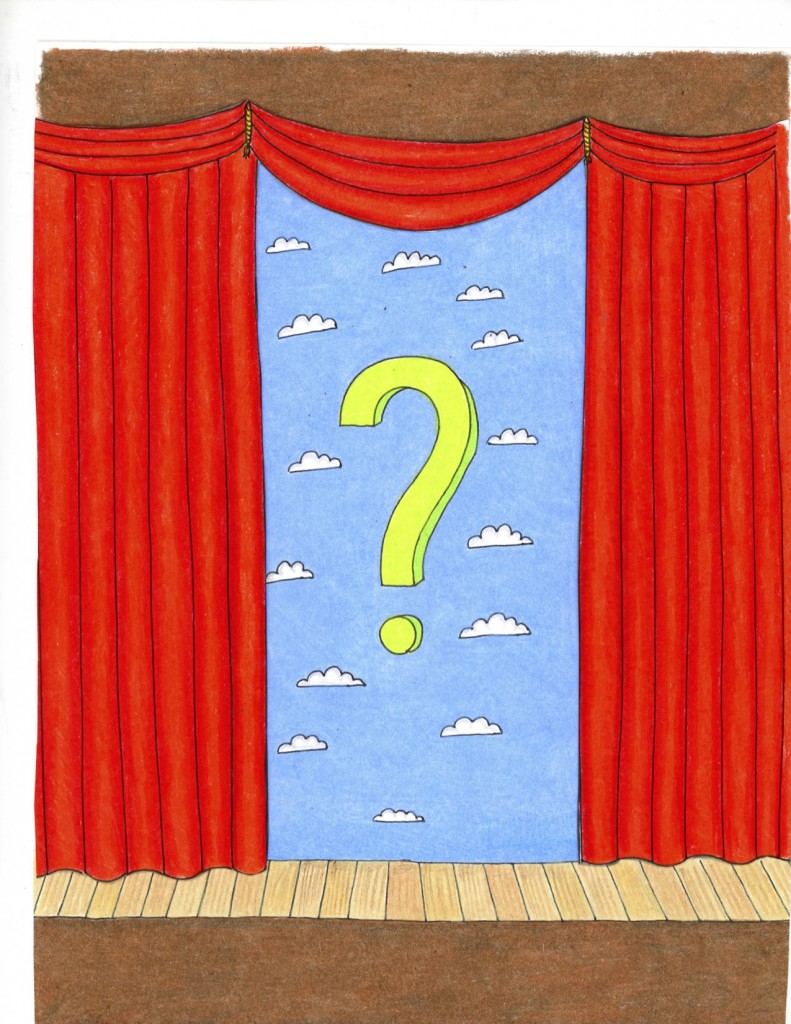Getting to Know Queer Burlesque
How does a person scorn the shame associated with being overweight? What about the guilt attached to eating and food? Dr. Fatbitch, a performer with Queer Burlesque, represented their liberation from such negative feelings by smearing a blob of chocolate frosting all over their naked body.
Such uplifting performances abound in the shows of Queer Burlesque. Based at Pitzer, the 5C group is dedicated to queering issues—examining weighty topics through a non-traditional lens in order to challenge views and identities. The group uses their theatrical shows to foster acceptance and understanding of different groups, ideas and individuals.
This student-run initiative presents two shows every year. Each performance is composed of many short acts, conceived and produced by the performers and showcasing issues or topics with strong personal resonance. The acts are united, however, under one over-arching theme; in the past the shows have explored the circus, dreams and academia as central subjects. Spoken-word, poetry performance, dance numbers, songs and many other forms of entertainment can be found in the group’s repertoire.
Andrea Frias, a performer from Pitzer, stresses the dependence of the show’s content on the ideas and experiences of the performers. They describes their own experience recognizing Queer Burlesque as a means to express their frustration with sexual relationships that eclipse love and respect for the partner as an individual. Pablo Baeza, another participant, describes his performance of a “body-autobiography” via monologue that engaged with his sexual identity, disability history and notions of self-presentation. “I feel like it is a very safe emotional space for me to feel a lot of vulnerability with the audience and with the performers,” he says. “Not only can you be who you want to be, but your sense of self is challenged.”
Both performers praise the acceptance and understanding found in Queer Burlesque. The group offers a body-positive atmosphere intent on accepting and celebrating bodies of all types and forms. Nudity, drag and a diverse array of costumes facilitate the use of the body and body image in the dialogue that occurs between performers and audience members. Both Andrea and Pablo describe the poignancy of appearing naked in front of the audience members and addressing them with a strong personal message. Pablo describes his naked performance of the poem “I Am Not a Man” by Harold Norse and the use of the poem’s denouncement of conventional masculinity and of his own nakedness to explore the relationship between perceived and his own psychological conceptions of maleness.
Indeed, the body and conceptions of the body form the subjects of many of the burlesque acts. Pablo describes a contact improv piece from last fall’s show in which a roomful of strangers practiced “engaging with each other physically in incredibly spontaneous ways.” Some humorous, some challenging and some very intimate, these physical interactions showcased a “willingness…to reconceptualize and redefine what it means to engage with other people physically and to touch them and have conversations about the body not just through language.” In another act, Andrea asserted themself as more than a sexual object and declared their right to be loved and respected for more than their physical person.
The exploration of gender also figures prominently in Queer Burlesque performances. Perhaps the first thing that might come to mind is drag performance, which provides a means for the performer’s personal exploration of his/her identity as well as opportunities for the audience members to engage with non-traditional gender presentation. However, less traditional forms of gender exploration can also be found. Last year, for example, a pieced featured a sexualized Santa Claus and introduced questioning and reconsideration about what notions of gender we project onto everyday things. A dance number challenged the conceptions of gender in hip hop dancing with a series of masks, male and female figures and gendered dance moves.
Queer Burlesque also offers a setting for dialogue about ability. In a spoken word piece from last year, a performer with a stutter and another with scoliosis discussed the limitations that their conditions imposed. They also presented some challenges they face with interactions with other people; the woman with scoliosis described how she encountered fearful reactions to her back brace, and the man with a stutter told of others completing his sentences and filling in words for him.
The performances have also appeal for awareness about certain topics of sex and sexuality. A past performance included an act dedicated to removing the misconceptions around BDSM practices. The performers addressed and countered some negative associations attached to BDSM culture. They called for more understanding of such practices, recognition that they provide positive sexual experiences for some people and for an end to the fear that they often evoke. Another piece—a song—examined the tensions between a straight woman’s casual experimentation with other women and the more serious intentions of a lesbian.
Both Andrea and Pablo praise participation in Queer Burlesque for cultivating self-confidence. They assert that knowledge of the self is also something that can be improved through the performances and creative efforts that the group offers. Pablo describes how Queer Burlesque has taught him that the most important thing is to be yourself and to the accept changes that come as you age. His participation has also taught him that it is important to “grow from the unease” that such changes can often evoke. The eye-opening and provocative nature of Queer burlesque, he says, is “forcing people to ask questions” and that in participating as either a performer or member of the audience, “we are challenging each other to see new possibilities.” Andrea, similarly, declares that Queer Burlesque is determined to confront conventional views and ideas and cautions potential showgoers to make sure that they are ready to have many of their conceptions and worldviews challenged.
Want to learn more?
Email Andrea at [email protected]

![[in]Visible Magazine](https://community.scrippscollege.edu/invisible/wp-content/uploads/sites/5/2011/04/Invisible-Masthead-2011-Spring1.png)








No comments yet... Be the first to leave a reply!